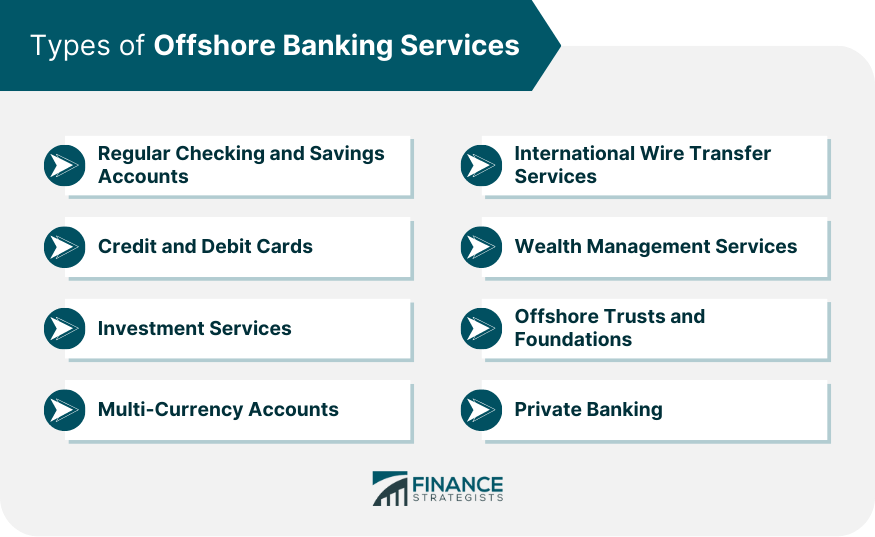How Offshore Company Formations Assist Entrepreneurs Streamline Worldwide Business Strategies
Wiki Article
Exploring the Solutions Offered in Offshore Firm Formations: What You Required to Know
Offshore firm formations offer a variety of services made to facilitate organization success while making certain compliance with lawful demands. These solutions can consist of company enrollment, legal recommendations, and plans for personal privacy through candidate directors. Furthermore, considerations around tax optimization and possession defense are critical. Recognizing these aspects can significantly influence one's decision-making procedure. Nonetheless, the intricacies of choosing the ideal jurisdiction and steering through laws elevate additionally concerns. What should one consider next?Recognizing Offshore Business Frameworks
What specifies an overseas business framework? An overseas company is typically signed up in an international jurisdiction, usually characterized by favorable regulatory environments and privacy. These structures are developed to supply lawful splitting up between the company's assets and its proprietors, making it possible for a range of monetary and functional advantages. Offshore business can be established as numerous types, including limited liability companies (LLCs), companies, or trusts, depending upon the regulatory structure of the picked jurisdiction.Trick attributes of these frameworks consist of boosted personal privacy, possession protection, and ease of global company transactions. In addition, they often require minimal local visibility and can assist in the administration of investments across borders. The selection of a certain offshore territory can greatly influence the operational abilities and conformity requirements of the company. On the whole, recognizing the details of overseas business structures is vital for financiers and business owners seeking to enhance their organization techniques.
Tax Obligation Advantages of Offshore Firms
Offshore business use substantial tax advantages that can improve profitability and monetary efficiency for company owner. Among the primary advantages is the capacity for minimized business tax prices, which can be notably reduced than those in the owner's home country. Numerous offshore jurisdictions provide tax incentives, such as tax obligation holidays or exemptions on specific sorts of revenue. Additionally, overseas business may benefit from favorable tax treaties, permitting the decrease or removal of withholding taxes on returns, royalties, and rate of interest. This can bring about raised money flow and far better reinvestment chances. Additionally, some overseas entities can operate under a territorial tax obligation system, which only tax obligations revenue created within that territory. This framework can be especially beneficial for services taken part in international profession or on-line solutions, allowing them to maximize their tax obligation commitments while preserving compliance with international laws. In general, these tax obligation advantages can substantially contribute to lasting financial success.Personal Privacy and Discretion Attributes
How can local business owner secure their sensitive details while benefiting from international chances? Offshore firm formations supply robust personal privacy and confidentiality functions that attract entrepreneurs seeking discretion (Offshore Company Formations). Several territories give candidate services, permitting individuals to select 3rd parties as directors or shareholders, thereby concealing their identifications from public documentsFurthermore, stringent information defense regulations in many overseas regions assure that sensitive information continues to be personal. Offshore firms frequently profit from boosted banking privacy, with regulations that protect client identifications and monetary deals.
Moreover, using exclusive addresses for signed up workplaces lessens direct exposure to public scrutiny.
These personal privacy procedures make it possible for local business owner to operate with higher confidence, recognizing their delicate data is protected. By leveraging these attributes, business owners can focus on calculated growth opportunities without the constant problem of details exposure.
Property Defense Methods
While guiding with the intricacies of international company, business owners need to prioritize property security to safeguard their wealth from possible threats. Offshore firm formations use robust strategies for mitigating exposure to lawful cases, financial institution activities, and political instability. One reliable method entails developing a limited liability company (LLC), which divides individual possessions from service liabilities, consequently supplying a shield against suits.In addition, entrepreneurs can utilize depend hold possessions, ensuring they continue to be safeguarded from lenders and lawful disputes. Territories with strong asset protection laws, such as Nevis or the Cook Islands, are commonly favored for their positive regulations. Executing correct insurance plan and branching out financial investments additionally enhances safety, decreasing vulnerability to market changes. Overall, making use of these techniques within an overseas framework not just advertises wealth conservation but also cultivates lasting economic stability, permitting business owners to concentrate on development and technology without excessive problem over property direct exposure.

Opening Up Offshore Financial Institution Accounts
Opening up overseas checking account includes comprehending the various account types readily available, which can satisfy different financial needs. In addition, the documents procedure is necessary, as it commonly needs particular types of identification and proof of house. This review will certainly make clear the options and needs for individuals and businesses looking for to establish overseas financial connections.Account Kind Used
Offshore savings account can be found in different types, each made to cater to different economic needs and objectives. Individual accounts are tailored for people seeking personal privacy and property protection, while corporate accounts facilitate company purchases and management of business funds. Multi-currency accounts are preferred amongst international capitalists, allowing for deals across different money without excessive conversion costs. Furthermore, financial savings accounts provide interest on down payments, attracting those seeking to grow their properties safely. Some financial institutions additionally provide investment accounts, offering customers access to various financial investment chances. Each account type might feature distinct advantages and features, permitting clients to select the one that straightens best with their monetary approaches and goals. Recognizing these options is basic for effective offshore banking.Needed Documentation Process
To effectively open up an overseas checking account, prospective customers should prepare a collection of particular documents that satisfy governing demands. This generally includes a valid ticket or government-issued identification to confirm identification. Clients are additionally needed to supply evidence of house, such as an energy costs or copyright, dated within this website the last three months. Additionally, a comprehensive description of the source of funds is required to guarantee compliance with anti-money laundering laws. Some financial institutions may ask for an organization strategy or recommendation letters, particularly for company accounts. Each jurisdiction may have one-of-a-kind demands; as a result, talking to a specialist in overseas services is suggested to identify all documentation is precise and full, helping with a smoother account opening procedure.Compliance and Governing Factors To Consider
Maneuvering the intricacies of compliance and governing considerations is necessary for any type of entity pursuing overseas company developments. Entities should stick to numerous international and local regulations that regulate economic activities, taxes, and business administration. Key laws commonly include anti-money laundering (AML) regulations, understand your consumer (KYC) procedures, and coverage demands to ensure openness.Firms must continue to be attentive concerning changes in regulation that may affect their operational status. Failure to abide can cause extreme charges, including penalties or the dissolution of the business. Engaging with financial and legal experts who concentrate on overseas laws can provide important guidance in steering through these complexities.
Furthermore, recognizing the effects of tax obligation treaties and global arrangements is basic for keeping conformity. Firms need to focus on developing durable compliance frameworks to alleviate risks and guarantee long-term sustainability in their overseas endeavors.
Selecting the Right Offshore Jurisdiction
How does one identify the most appropriate offshore territory for company formation? The option of jurisdiction is essential and involves a number of variables. Initially, one must evaluate the legal framework and laws regulating business in possible jurisdictions. Favorable tax routines, such as reduced or zero company tax obligations, are usually a main consideration. In addition, the political stability and reputation of the territory play significant functions in guaranteeing the defense of possessions and conformity with worldwide standards.Furthermore, the access of banking solutions and the ease of operating ought to not be forgotten. A jurisdiction offering robust discretion provisions can additionally be advantageous for those seeking personal privacy. Examining More Bonuses the prices linked with company formation, upkeep, and prospective lawful charges is vital. By considering these factors, one can make an informed decision, making sure that the picked overseas territory aligns with their business goals and operational needs.

Regularly Asked Inquiries
The length of time Does the Offshore Business Formation Refine Normally Take?

The overseas company formation process usually takes anywhere from a few days to several weeks. Offshore Company Formations. Elements influencing this timeline include territory, documents efficiency, and certain provider associated with the development procedure
What Are the Preliminary Expenses Involved in Establishing an Offshore Firm?
The first expenses for establishing up an offshore company can differ extensively, typically incorporating enrollment fees, lawful costs, and extra costs for solutions like savings account arrangement and conformity, typically totaling numerous hundred to numerous thousand dollars.Can Individuals Kind Offshore Companies Without Expert Support?
Individuals can practically develop offshore firms independently; nevertheless, they commonly encounter intricate lawful and governing requirements. Offshore Company Formations. Specialist assistance is suggested to browse these obstacles properly and guarantee conformity with relevant regulations and policiesWhat Records Are Needed for Offshore Firm Enrollment?
The papers needed for offshore business enrollment normally consist of identification evidence, a detailed service strategy, proof of address, and, in some jurisdictions, a statement of beneficial ownership and resolutions from directors.Exist Ongoing Maintenance Charges for Offshore Firms?
Recurring maintenance fees for overseas firms are generally needed to assure conformity with local policies. These charges might consist of yearly renewal charges, signed up agent solutions, and accounting, differing by territory and specific company structure.
Report this wiki page